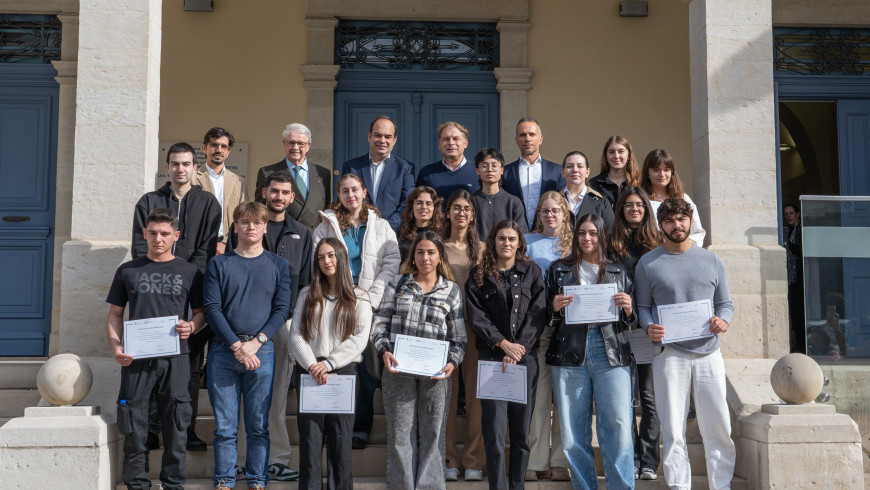
PwC: Investment in Mega-Event-Related Infrastructure Can Accelerate Economic Development by as Much as Three Decades
2/6/2011 16:12
PwC analyzes transformative effect of supporting infrastructure for mega-events such as the Olympics or World Cup
A new report by PwC US – “Game on: Mega-event infrastructure opportunities” - highlights how investment in mega-event-related infrastructure can accelerate economic development in a country by as much as three decades. According to PwC, winners of mega-event bids should begin planning far ahead of the actual event, often a decade or longer in advance, recognizing that success in hosting a mega-event must include the supporting infrastructure required for participation, by both athletes and spectators.
PwC research has found that a city or region needs to excel in four essential dimensions to capture attention on the world stage: quality services to residents and businesses, sustainable development, visionary leadership, and consistency of image.
"When a city or region plans ahead for the infrastructure required for an event like the Olympics or FIFA World Cup™, the results are transformative," said Carter Pate, Global and U.S. Leader of PwC’s Capital Projects & Infrastructure practice. “Our research has found that advance planning can improve a region's quality of life and business competitiveness, resulting in long-term economic gain.”
According to PwC, mega-events represent an opportunity not just for the host city but also for private investors to make their mark or strengthen their position on the world stage. Various levels of public- private partnerships have evolved over the course of several decades of collaboration for the Olympics. Already widely used in countries such as the UK and Australia, these relationships offer new opportunities for Brazil, Russia, and Qatar to attract private sector participation in infrastructure development.
“Best suited to large-scale infrastructure assets with ongoing maintenance requirements, public-private partnerships can help secure additional financing, offer specialized expertise, and better manage risk,” added Pate.
International mega-event statistics noted by PwC include:
o In anticipation of increased consumption during the 2014 Winter Olympics in Sochi, 200 new facilities will power up incrementally, increasing the energy capacity of the Sochi power grid by 250 percent.
o Brazil is expected to invest approximately $83 billion in infrastructure from 2009 to 2016 to prepare for World Cup football in 2014 and the Olympics in 2016.
o Qatar expects to spend $70 billion on infrastructure upgrades in anticipation of World Cup 2022.
o In Spain, Barcelona used the 1992 Olympics as a catalyst to speed up previously established goals for urban regeneration. Barcelona spent six times as much on infrastructure (both Games infrastructure and supporting infrastructure) as it did on organizing the event itself. The city experienced a metamorphosis within five years that would otherwise have taken three decades.
According to the Organization for Economic Cooperation and Development (OECD), global demand for infrastructure will continue to expand significantly in the decades ahead, driven by global economic growth, technological progress, climate change, urbanization, and growing congestion.
“Investing in infrastructure offers a multitude of economic and social benefits to the region itself. It also offers a wealth of opportunity to international investors seeking new markets,” stated Pate.
For more information on PwC’s Capital Projects and Infrastructure practice, please visit http://www.pwc.com/gx/en/capital-projects-infrastructure.
A new report by PwC US – “Game on: Mega-event infrastructure opportunities” - highlights how investment in mega-event-related infrastructure can accelerate economic development in a country by as much as three decades. According to PwC, winners of mega-event bids should begin planning far ahead of the actual event, often a decade or longer in advance, recognizing that success in hosting a mega-event must include the supporting infrastructure required for participation, by both athletes and spectators.
PwC research has found that a city or region needs to excel in four essential dimensions to capture attention on the world stage: quality services to residents and businesses, sustainable development, visionary leadership, and consistency of image.
"When a city or region plans ahead for the infrastructure required for an event like the Olympics or FIFA World Cup™, the results are transformative," said Carter Pate, Global and U.S. Leader of PwC’s Capital Projects & Infrastructure practice. “Our research has found that advance planning can improve a region's quality of life and business competitiveness, resulting in long-term economic gain.”
According to PwC, mega-events represent an opportunity not just for the host city but also for private investors to make their mark or strengthen their position on the world stage. Various levels of public- private partnerships have evolved over the course of several decades of collaboration for the Olympics. Already widely used in countries such as the UK and Australia, these relationships offer new opportunities for Brazil, Russia, and Qatar to attract private sector participation in infrastructure development.
“Best suited to large-scale infrastructure assets with ongoing maintenance requirements, public-private partnerships can help secure additional financing, offer specialized expertise, and better manage risk,” added Pate.
International mega-event statistics noted by PwC include:
o In anticipation of increased consumption during the 2014 Winter Olympics in Sochi, 200 new facilities will power up incrementally, increasing the energy capacity of the Sochi power grid by 250 percent.
o Brazil is expected to invest approximately $83 billion in infrastructure from 2009 to 2016 to prepare for World Cup football in 2014 and the Olympics in 2016.
o Qatar expects to spend $70 billion on infrastructure upgrades in anticipation of World Cup 2022.
o In Spain, Barcelona used the 1992 Olympics as a catalyst to speed up previously established goals for urban regeneration. Barcelona spent six times as much on infrastructure (both Games infrastructure and supporting infrastructure) as it did on organizing the event itself. The city experienced a metamorphosis within five years that would otherwise have taken three decades.
According to the Organization for Economic Cooperation and Development (OECD), global demand for infrastructure will continue to expand significantly in the decades ahead, driven by global economic growth, technological progress, climate change, urbanization, and growing congestion.
“Investing in infrastructure offers a multitude of economic and social benefits to the region itself. It also offers a wealth of opportunity to international investors seeking new markets,” stated Pate.
For more information on PwC’s Capital Projects and Infrastructure practice, please visit http://www.pwc.com/gx/en/capital-projects-infrastructure.














 3287.99
3287.99 1275.09
1275.09
